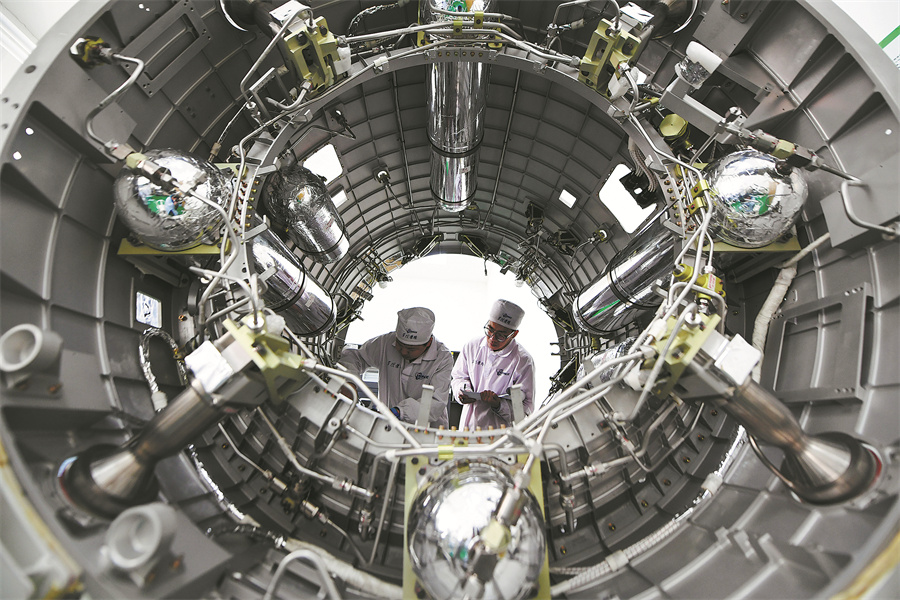Advancing new industrialization, modernization
'New quality productive forces' big game-changer, instead of being just a catchphrase


"New quality productive forces", the catchphrase that defined the recently concluded two sessions, the annual gatherings of China's top legislature and political advisory body, will signify the new growth drivers in the world's second-largest economy and seek to overcome both challenges and uncertainties, said national legislators, political advisers and industry experts.
They said the country is sharpening focus on the task of accelerating the development of new quality productive forces. This, in turn, will enhance the resilience and competitiveness of China's industrial and supply chains, advance new industrialization and inject strong impetus into the country's economic recovery.
They also called for heightened efforts to enhance independent innovation capabilities, achieve breakthroughs in core technologies in key fields by investing more in basic research and strategic emerging and future-oriented industries, and bolster industrial upgrade through the in-depth integration of cutting-edge digital technologies with the real economy.
Emphasizing the key role of innovation, the phrase "new quality productive forces" refers to advanced productivity liberated from traditional economic growth models. Such productivity is characterized by high-tech, high efficiency and high quality, and symbolizes the nation's new development philosophy.
First put forward by President Xi Jinping during his inspection tour of Heilongjiang province in September, the phrase was highlighted again at the Central Economic Work Conference in December, and became the subject of a group study session of the Political Bureau of the Communist Party of China Central Committee in January.
Xi, who is also general secretary of the CPC Central Committee, underscored the concept on March 5 while participating in a deliberation during the second session of the 14th National People's Congress, the country's top legislature, stressing that new quality productive forces should be developed based on local conditions.
NPC deputy Pan Jiaofeng, who is also president of the Institutes of Science and Development, which is part of the Chinese Academy of Sciences, said, "The development of new quality productive forces is an important focus of promoting high-quality development; these forces are playing a prominent role in the construction of a modern industrial system."
He emphasized the significance of nurturing new quality productive forces as they can bolster industrial upgrade, foster strategic emerging industries and future-oriented industries, and facilitate the development of the digital economy.
The strategic emerging industries and future-oriented industries mainly include new-generation information technology, new energy, high-end equipment, biotechnology, artificial intelligence and quantum computing.
This year's Government Work Report stated that China will give top priority to modernizing its industrial system and developing new quality productive forces at a faster pace.
The country will also give full rein to the leading role of innovation, spur industrial innovation by making innovations in science and technology and press ahead with new industrialization, in order to promote a new leap forward in the productive forces, the work report stated.
Noting that China is now in a critical period of innovation-driven development path, Pan said there is an urgent need to develop new technologies, new industries and new models to inject new momentum into its economic growth amid downward pressure.
Through the development of new quality productive forces, the country can seize the historic opportunities of a new round of global technological revolution and industrial transformation, achieve a qualitative leap in economic development, and promote industrial innovation through sci-tech innovation so as to gain a competitive edge in global competition, he said.
"The new quality productive forces are mainly driven by revolutionary technological breakthroughs, innovative allocation of production factors, and deep industrial transformation and upgrade," said Qu Yongyi, Party secretary and deputy director of the Institute of Industrial Economics, which is part of the Chinese Academy of Social Sciences. He is also a member of the 14th National Committee of the Chinese People's Political Consultative Conference, the country's top political advisory body.




































